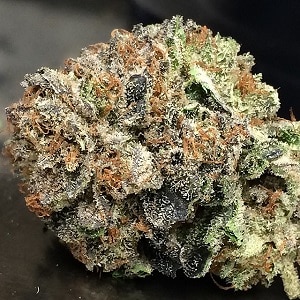 A substantial majority of District residents believe Mayor Bowser should move forward with taxation and regulation of marijuana despite Congressional prohibition, according to a survey conducted over the weekend by Public Policy Polling (PPP) for the Drug Policy Alliance, DC Vote, DC Working Families and the Washington City Paper. 66 percent of respondents believe the Mayor should pursue a legal method (such as use of reserve funds) to implement taxation and regulation of marijuana in the District. In light of Congressional interference attempting to prevent such regulation, 63 percent of residents view marijuana legalization as a statehood issue for the District.
A substantial majority of District residents believe Mayor Bowser should move forward with taxation and regulation of marijuana despite Congressional prohibition, according to a survey conducted over the weekend by Public Policy Polling (PPP) for the Drug Policy Alliance, DC Vote, DC Working Families and the Washington City Paper. 66 percent of respondents believe the Mayor should pursue a legal method (such as use of reserve funds) to implement taxation and regulation of marijuana in the District. In light of Congressional interference attempting to prevent such regulation, 63 percent of residents view marijuana legalization as a statehood issue for the District.
A majority of respondents also recognized that limiting consumption of marijuana to the home is problematic for many residents (especially renters who could face eviction) and 61 percent would support the creation of regulated places where adults can legally consume marijuana.
“The District is at a crossroads; will our elected officials continue to prop up prohibition policies like the private club ban out of fear of Congress, or stand up for home rule and sound public policy by moving ahead with full legalization and regulation?,” said Bill Piper, Senior Director of National Affairs for the Drug Policy Alliance. “The Council and Mayor should listen to residents and take a stand for District autonomy by using reserve funds to tax and regulate marijuana, or at the very least allow the creation of regulated venues where people can legally consume marijuana without fear of arrest or eviction.”
These findings come as the District draws near to the one-year anniversary of the implementation of Initiative 71, and residents and elected officials are grappling with the lack of full legalization of marijuana. Initiative 71, which was overwhelmingly approved by District voters in 2014, legalized the possession of up to two ounces marijuana for adults over the age of 21, and allowed individuals to grow up to six plants in their home. The implementation of Ballot Initiative 71 in the District has resulted in an unprecedented drop in arrests for possession of marijuana. D.C. laws prevented the ballot initiative from addressing the taxation and sale of marijuana, which requires action by the D.C. Council. However, Congress blocked D.C. lawmakers from using locally raised public funds to tax and regulate marijuana like alcohol more than a year ago. This congressional ban does not prevent Mayor Bowser and local officials from legally using previously appropriated emergency reserve funds to pay for any costs associated with enacting and implementing a system of taxing and regulating marijuana in the District.
Currently, the Council of the District of Columbia is working on legislation largely outlawing adult marijuana use in the District. Yesterday the Council Committee on the Judiciary voted to dilute the will of District voters who approved Ballot Initiative 71 by passing unnecessary legislation that would severely restrict adult marijuana use in the District, and prohibit consumption everywhere but the home. The passage of the controversial measure occurred under unusual circumstances. Almost no notice of the markup of the controversial bill was provided. Notice was not provided to the public until only a few minutes before markup, and even Committee members received less than 24 hours’ notice of bill consideration, in violation of the Committee’s own rules. In a very rare move, remarked upon by other councilmembers, Council Chairman Phil Mendelson joined the committee for the markup and provided the swing vote to advance the bill. Though current law allows D.C. residents to consume marijuana in a private residence, renters can face eviction for home use, and marijuana use anywhere else is a criminal offense that can lead to arrest. Advocates believe the legislation will expand the criminalization of marijuana consumption by adults and is needlessly broad. The Council is expected to begin taking final votes on this legislation on March 1st.
“It is clear that Chairman Mendelson and Mayor Bowser rigged the process against the people, what is unclear is why local officials continue to push forward plans to criminalize adult use of marijuana despite substantial opposition from constituents,” said Kaitlyn Boecker of the national affairs office for Drug Policy Alliance. “They claim such prohibition policies are the only option due to the congressional prohibition, even though banning consumption flies in the face of D.C. voters who legalized adult use of marijuana without restriction by approving Ballot Initiative 71. These poll numbers are a strong rebuke to any District official who dares to do Congress’ bidding over upholding the will of the people.” said Boecker.
Other results of the poll include:
- 79 percent believe that when Congress blocks a successful District voter approved measure, elected officials should use all legal means to implement the measure anyway.
- 60 percent think drug possession laws (for substances other than marijuana) are too harsh.
- 78 percent support the expansion of the supply of the overdose reversal drug naloxone in the District.
The survey of 962 Washington, D.C. voters was conducted by Public Policy Polling on January 22-24. The full results and crosstabs are available atwww.drugpolicy.org/sites/default/files/WashingtonDCResults_012816.pdf
Source: Drug Policy Alliance – make a donation


























